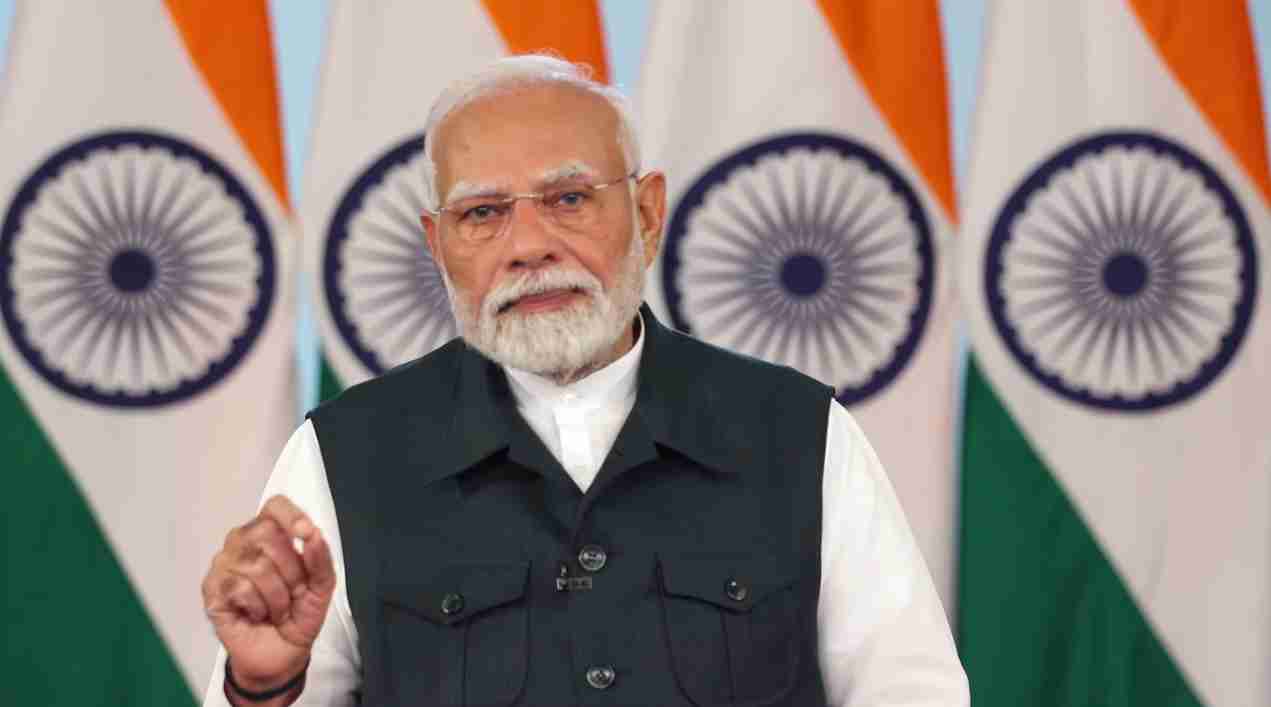Prime Minister Narendra Modi delivered a compelling address at the 2nd International Conference on Green Hydrogen today, marking a pivotal moment in the global dialogue on energy transition and climate action. Speaking to a gathering of distinguished dignitaries and experts, Modi emphasized the urgency of addressing climate change and the transformative potential of Green Hydrogen.
“The world is undergoing a crucial transformation,” Modi began, highlighting that the impacts of climate change are already being felt and necessitate immediate action. “The time for action is here and now,” he asserted, underscoring that energy transition and sustainability have become central themes in global policy discussions.
Modi took pride in India’s proactive stance on green energy, noting that the country was among the first G20 nations to meet its Paris Agreement commitments—nine years ahead of the 2030 target. He highlighted impressive advancements over the past decade, including a nearly 300% increase in installed non-fossil fuel capacity and a more than 3,000% boost in solar energy capacity.
Despite these achievements, Modi stressed that India is not resting on its laurels. The nation remains focused on enhancing existing solutions and exploring innovative avenues, particularly in the realm of Green Hydrogen. “Green Hydrogen is emerging as a promising addition to the world’s energy landscape,” Modi said, explaining its potential to decarbonize hard-to-electrify industries such as refineries, fertilizers, steel, and heavy-duty transportation.
The Prime Minister also highlighted the role of Green Hydrogen as a storage solution for surplus renewable energy. He elaborated on the National Green Hydrogen Mission, launched in 2023, which aims to position India as a global hub for the production, utilization, and export of Green Hydrogen. “The National Green Hydrogen Mission is giving an impetus to innovation, infrastructure, industry, and investment,” Modi remarked, pointing out the government’s focus on research and development, industry-academia partnerships, and support for start-ups.
Modi called for greater international cooperation to advance the Green Hydrogen sector. He emphasized the need for global partnerships to scale up production, reduce costs, and build necessary infrastructure. “The answers to climate change and energy transition concerns should be global as well,” he said, advocating for joint investments in research and innovation.
Reflecting on the outcomes of the G20 Summit held in India in September 2023, Modi highlighted the adoption of five high-level voluntary principles on Hydrogen, which are shaping a unified roadmap for global efforts. “The decisions we make now will decide the lives of our future generations,” he stressed.
Encouraging the global scientific community to take the lead, Modi posed critical questions about improving the efficiency of electrolysers, exploring the use of seawater and municipal wastewater for production, and addressing the challenges of using Green Hydrogen in public transport, shipping, and inland waterways.
Concluding his address, Modi invoked humanity’s history of overcoming challenges through collective and innovative solutions. “We can achieve anything when we are together,” he said, urging participants to work collaboratively to accelerate the development and deployment of Green Hydrogen. The Prime Minister extended his best wishes to all attendees of the conference, emphasizing the importance of collective action in building a greener and more sustainable future.



